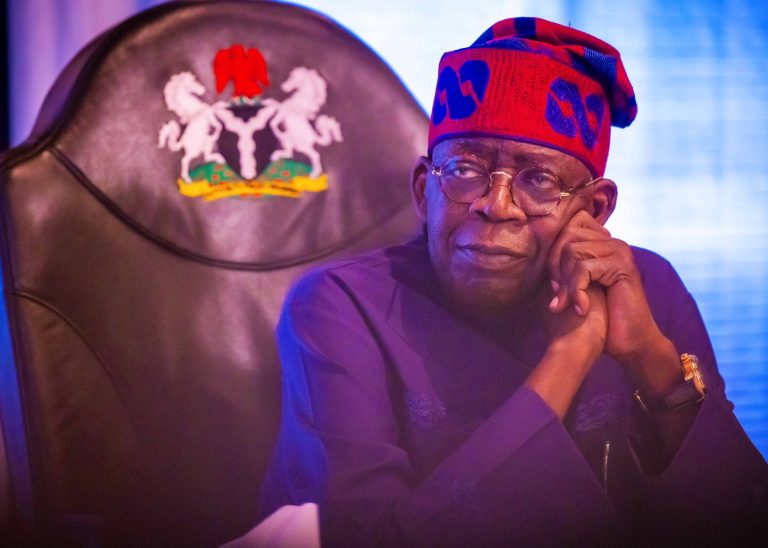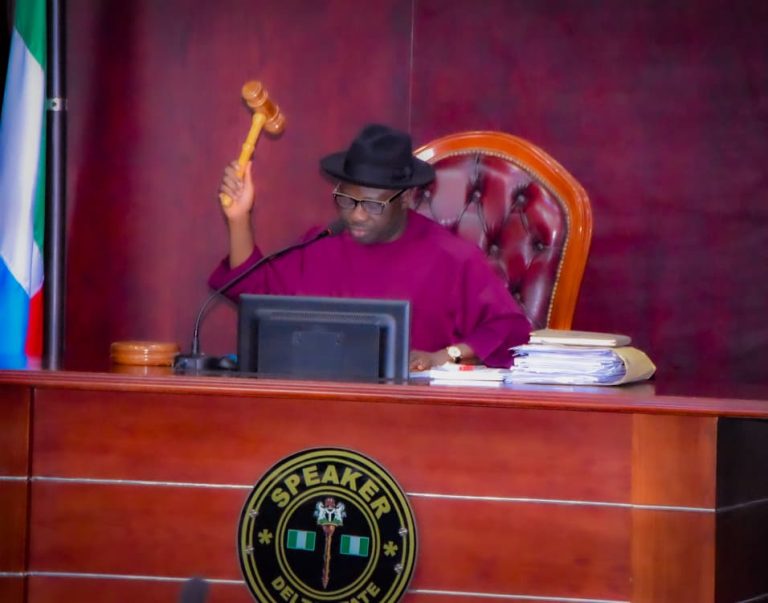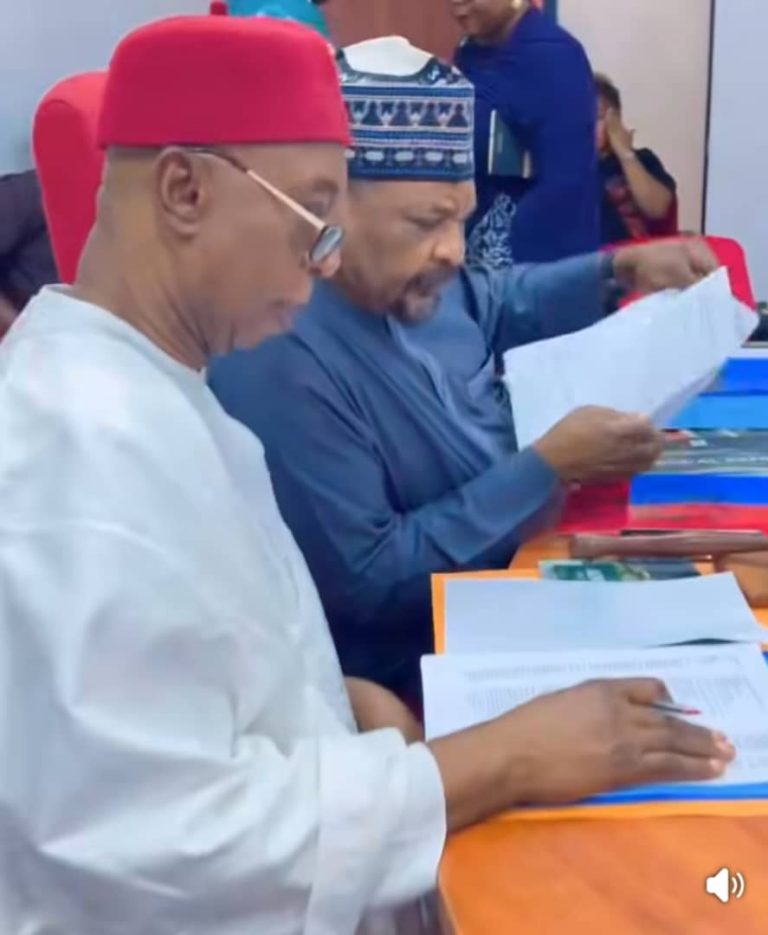
The Nigeria Labour Congress and the Trade Union Congress have thumbed down the N500bn palliative proposed by President Bola Tinubu, stating that it is grossly inadequate to assuage the hardships confronting workers sequel to the fuel subsidy removal.
I They are demanding a 300 per cent salary increase to enable workers to cope with the challenges imposed by the deteriorating economic situation that came with the removal of the controversial fuel subsidy.
Police Inspector’s Wife Cries Out As Husband…
On Wednesday, the President wrote to the House of Representatives seeking approval for N500bn to cushion the effects of petrol subsidy removal.
Tinubu’s request was contained in a letter sent to the National Assembly and read during plenary by the Speaker of the House of Representatives, Tajudeen Abbas.
The President had announced the petrol subsidy removal during his inaugural address on May 29, 2023, in response to claims that the subsidy regime favoured the rich more than the average Nigerians, among other reasons.
In his letter, the President proposed an amendment to the 2022 Supplementary Appropriation Act.
It read, “I write to the House of Reps to approve the amendment of the 2022 Supplementary Appropriation Act in accordance with the attached.
“The request has become necessarily important to, among other things, the source for funds necessary to provide palliatives to mitigate the effect of the removal of fuel subsidy on Nigerians.
“Thus, the sum of N500bn only has been extracted from the 2022 Supplementary Act of N819,536,937,815 for the provision of palliative to cushion the effect of petrol subsidy removal.”
The president said he hoped the lawmakers would consider his request “expeditiously.”
The House is expected to hold a plenary today on the president’s request.
Last December, the National Assembly passed a supplementary budget of N819bn for the 2022 fiscal year and also extended the implementation of the 2022 budget till March 31, 2023.
In May, the National Assembly passed the amendment to the 2022 supplementary budget to extend the implementation of the capital components to December 2023.
But unimpressed by the amount contained in the President’s letter, the NLC noted that the money would not be enough to cater for 125 million Nigerians who are believed to be living in poverty.
The National Treasurer of the NLC, Hakeem Ambali, who spoke in an interview with our correspondent in Abuja, questioned the extent to which the palliative would cover.
When asked if the amount would be sufficient, he said, “Definitely not. We have over 125m Nigerians that are technically poor. To what extent can this cushion the effects of this economic hardship?”
Speaking on ways by which the President can mitigate the effect of subsidy removal, the NLC official asked for “Minimum wage review of 300 per cent to all workers; granting licences to individuals for modular refineries to refine petrol locally; granting economic stimulus loan to SMEs at 15 per cent rate.’’
He added, ‘’The government should provide social benefits for aged and unemployed youths; agric loans to farmers and youths through the Agric Bank and community banks at single digit rate; provide alternative energy supply such as massive investment in solar power and Compressed Natural Gas to motorists.
“Fix the refineries; reverse the privatization of electricity back to the state due to poor performance; Execute metro rail line projects in all state capitals and reduction of school fees for students of tertiary institutions.”
NACCIMA, LCCI react
Speaking with The PUNCH, the Director-General of the Nigerian Association of Chambers of Commerce, Industry, Mines and Agriculture, Olusola Obadimu, welcomed the idea of palliatives for the poor, but he questioned how the N500bn for the palliative measures would be spent.
According to him, the chamber will refrain from making further comments on the matter until clarification is given on how the fund would be utilised.
He said, “The idea, in principle, is good. Of course, people expect some relief. It is in the statement that we issued. We said it clearly that palliatives would be a good idea. We argued for it. But talking about a specific figure is something we can’t do when we don’t know the scope. The concept is fine, but we need more information about the scope.”
On his part, the Deputy-President of the Lagos Chamber of Commerce and Industry, Gabriel Idahosa, while commending the move, said the fund would be insufficient to cushion the impact of the subsidy removal and the devaluation of the naira.
He further stated that the media and other interest groups must sustain the advocacy to ensure that the palliative measures are extended to the public and private sectors.
Idahosa said, “Whatever the president implements will not be sufficient to wipe out the impact of the two policies — subsidy removal and floating of the currency. So, it is going to be a partial effort to reduce, not eliminate the effect of those policies.




